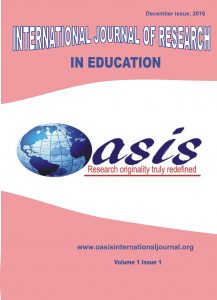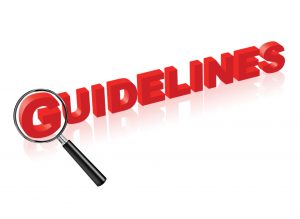ADOLESCENT SOCIAL DEVELOPMENT: IMPLICATIONS FOR TEACHING AND LEARNING
Alfred Afamefuna Ezejiegwu
Department of Educational Psychology
Nwafor Orizu College of Education, Nsugbe, Anambra State-Nigeria
International Journal of Research in Education (IJRE)
Oasis International Journal series
Vol. 1 No. 1 December 2016

Abstract
Adolescence is the life stage that bridges childhood and adulthood. Adolescents face a range of developmental issues. During the transition from childhood through adolescence to adulthood the individual is undergoing rapid social development. During this time, the adolescent’s peer group becomes increasingly important as a source of information, experience and support. Adolescents strongly identify with the contemporary youth, culture and begin to push for autonomy and responsibility in resistance to parental control and authority. Peer groups provide a context for personal relationships and a sense of belonging. Adolescents who fail to pass successfully through the turbulence adolescence transitional years are prone to exhibit social behaviours that tend to be hazardous. Some of them include drug and alcohol abuse, juvenile delinquency, adolescent pregnancy, depression and eating disorders. In view of the hazards associated with adolescent’s social behaviours, it becomes pertinent for parents and other significant social role models to ensure that their adolescents begin early in life to develop specific social skills and techniques, certain social understanding and tolerance, that will enable them to satisfy their social needs and lead a wholesome social life.
Keywords: Adolescent, social development, implications, teaching and learning

Open Access
This is an open access journal which means that all the content is freely available without charge to the user or his/her institution. Users are allowed to read, download, copy, print, search, or link to the full texts of the articles for their personal use, and/or use them for any other lawful purpose, without asking prior permission from the publisher or the author. This is in accordance with the BOAI definition of open access.

Authors Guideline
Papers submitted should follow the Oasis International Journal authors’ guideline and not be under concurrent consideration at another journal.
Any potential data overlap with previous studies should be noted and described in the letter to the Editor.
![]()
Oasis International Researchers Forum
Be a member of Oasis International Researchers Forum. A team that promote education globally, provide a platform for exchange of innovative ideas among academia, organize conferences, workshop and seminars where findings from various research studies will be intellectually discussed as well as encourage young researchers in their various field of studies.
